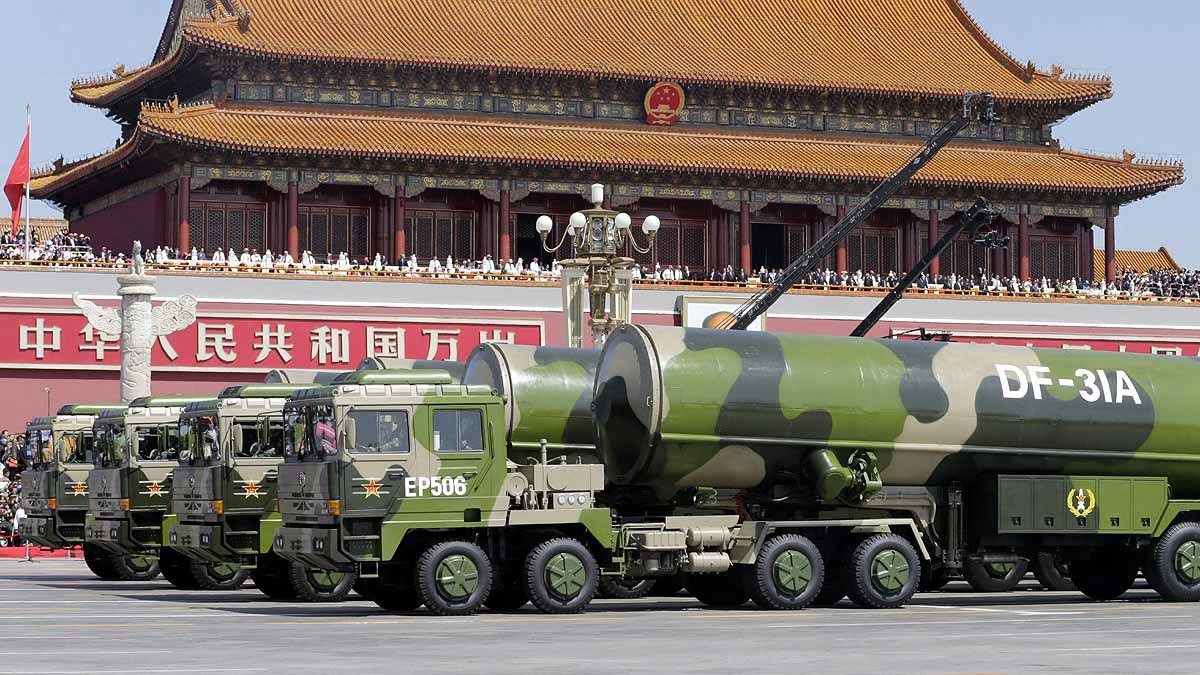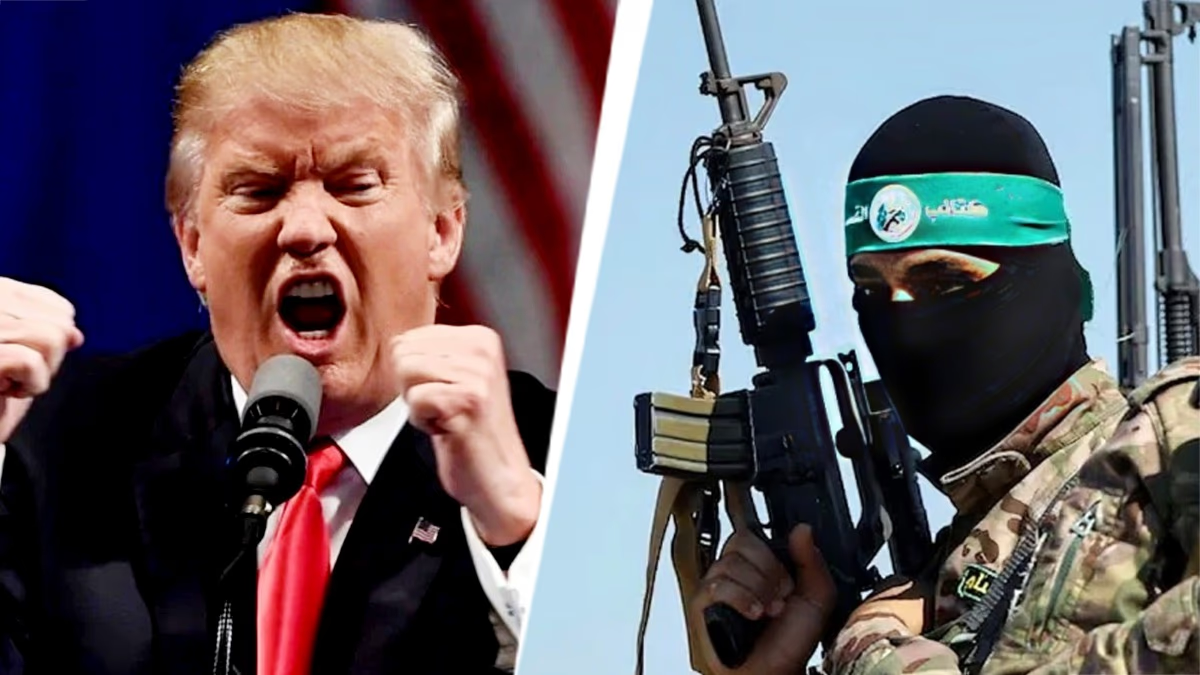China is rapidly enhancing its military power, recently dazzling the world with a grand military parade in Beijing. This parade featured some of China's advanced weaponry, capable of striking as far as the American continent.
On the other hand, U.S. President Donald Trump appeared visibly irate with the event. He perceives it as a conspiratorial act against America, involving China, Russia, and North Korea. Let's delve into the capabilities of these weapons and the reasons behind Trump's displeasure.
A Glimpse at China's Military Might
The People's Liberation Army of China ranks among the largest in the world. By 2025, China plans to possess around 600 nuclear weapons, a rapidly increasing arsenal. These weapons are mainly deployed through ballistic missiles, submarines, and bomber aircraft.
China's strategy primarily focuses on the Asia-Pacific region. However, some of its missiles can now reach the U.S. mainland. According to a 2024 report by the U.S. Department of Defense, these missiles can target American coasts, especially amidst conflicts like those in Taiwan or the South China Sea. Although these weapons are portrayed as defensive, the U.S. regards them as threats.
To comprehend the capabilities of China's armaments, we categorize them. Below is a table outlining the range, type, and impact of these weapons on the U.S., derived from RAND Corporation and U.S. intelligence reports.
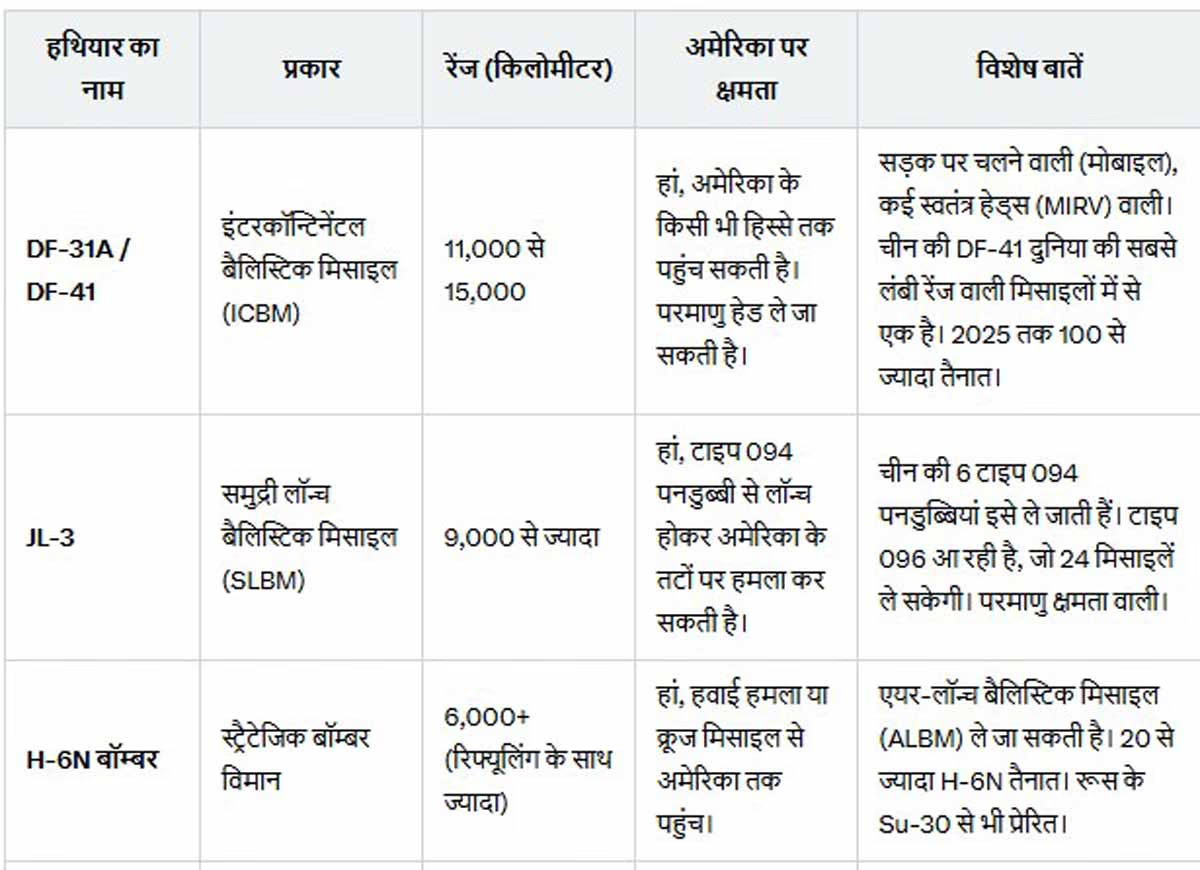
Source: aajtak

Source: aajtak
China adheres to a no-first-use policy for these weapons, yet the U.S. believes they could be used during crises like those involving Taiwan. The DF-41 missile can potentially reach American cities like New York or Los Angeles. The JL-3, launched from submarines, can covertly approach U.S. shores. Hypersonic arms like the DF-17 can penetrate American missile defenses due to their speed and maneuverability.
How do these Weapons Function?
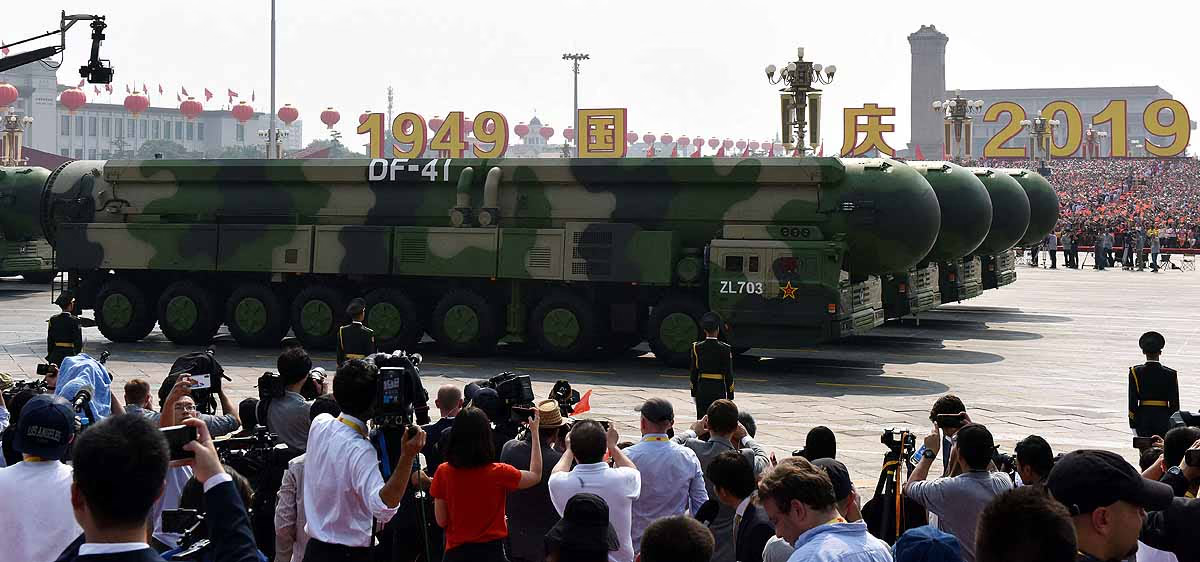
Source: aajtak
Intercontinental Ballistic Missiles (DF-31A/DF-41):
These are launched from land. The DF-41 can carry over ten warheads targeting multiple objectives simultaneously. They can be launched from China and reach the U.S. in 30-40 minutes. However, the U.S. has missile defense systems like THAAD to intercept them.
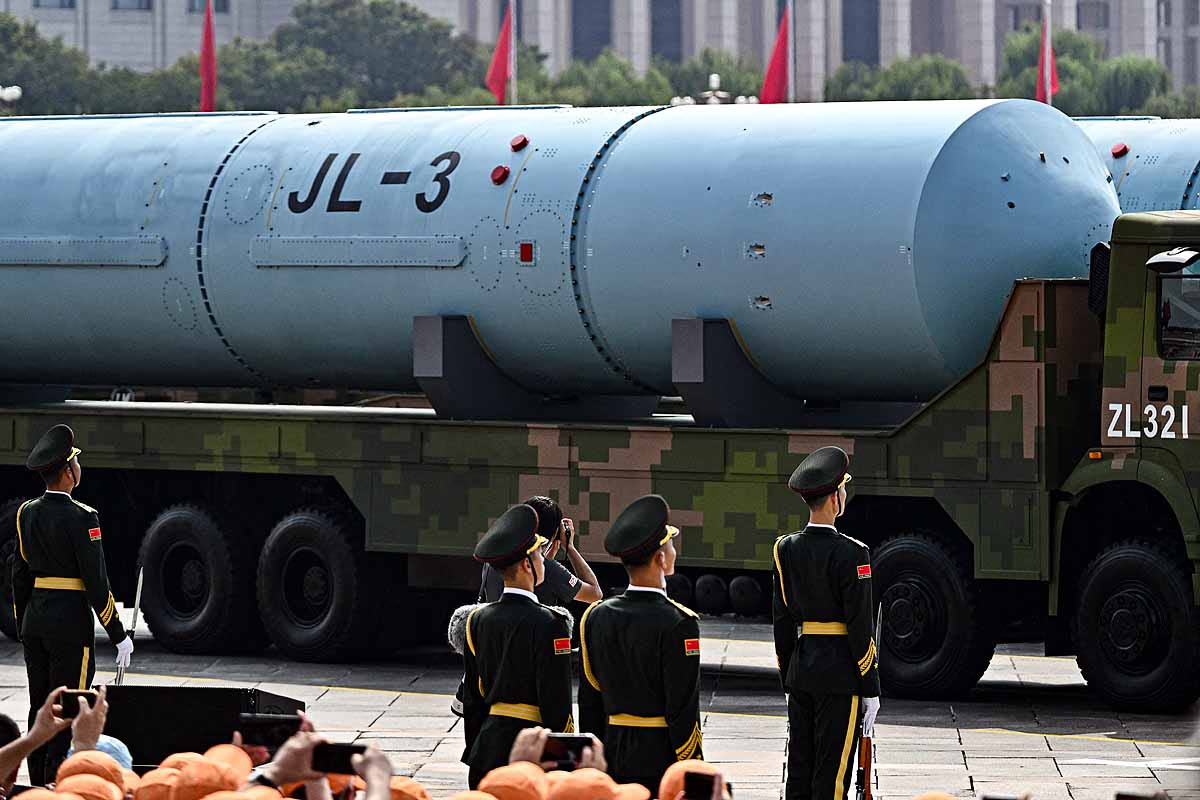
Source: aajtak
Submarine-Launched Ballistic Missiles (JL-3):
These launch from underwater, capable of surprise attacks on U.S. coasts, as submarines are challenging to detect. China has six such submarines.
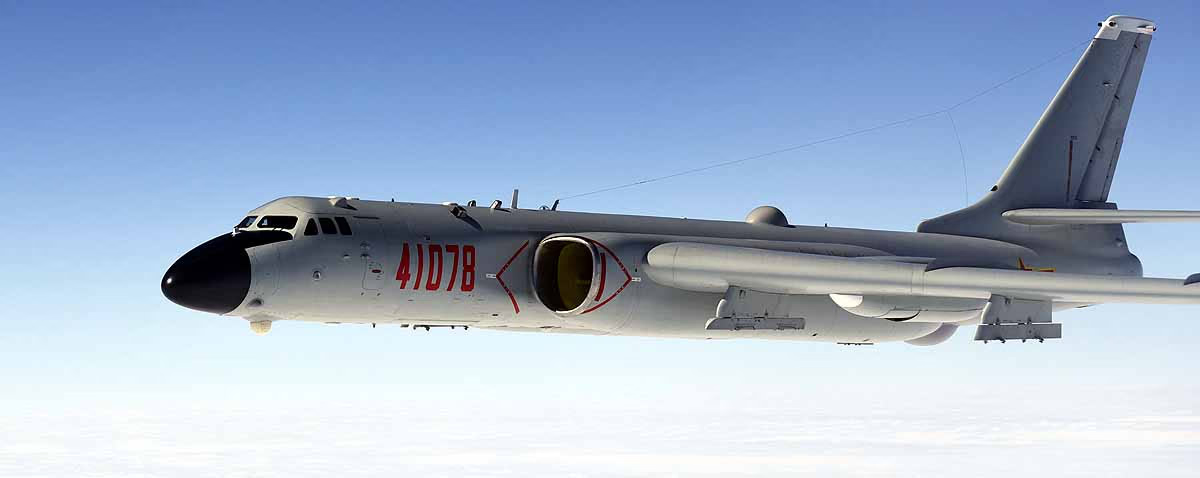
Source: aajtak
Bombers (H-6N):
These aircraft can refuel mid-air to cover long distances. They can deploy cruise missiles or nuclear bombs, though U.S. air defenses could intercept them.
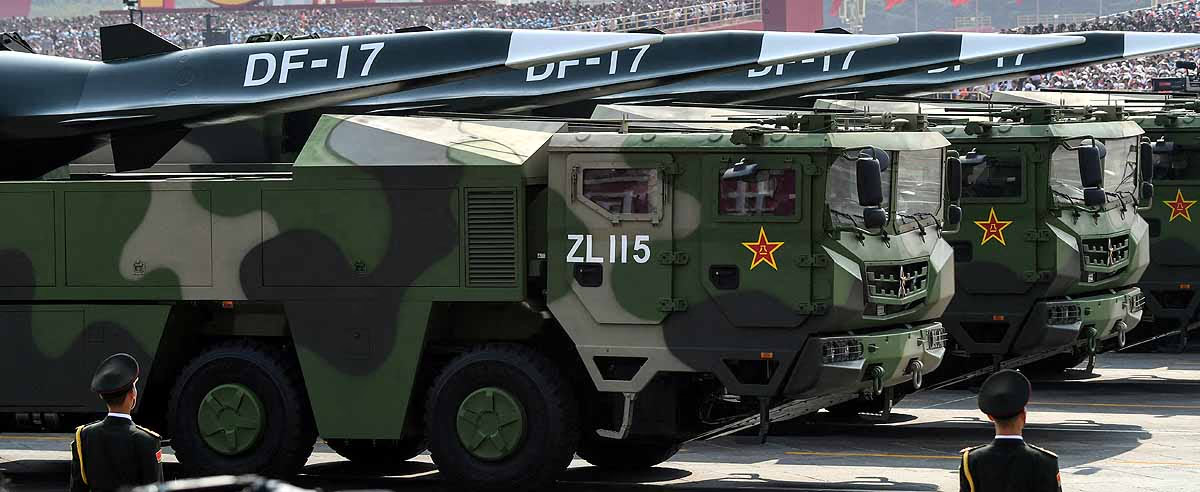
Source: aajtak
Hypersonic and Fractional Orbital Bombardment Systems (FOBS):
These cutting-edge technologies fly faster than sound, making tracking challenging. FOBS can orbit before attacking from the South Pole, evading U.S. radars.
These weapons are part of China's Anti-Access/Area Denial strategy, obstructing the U.S. Navy's approach to China. Nonetheless, in a full-scale war, the U.S. would still hold military superiority, possessing over 5,000 nuclear weapons. Nevertheless, China's fast-growing capabilities raise concerns.
Why is Trump Furious? The Parade's Provocation
On September 3, 2025, in Beijing's Tiananmen Square, China commemorated the 80th anniversary of its victory over Japan in World War II with a lavish military parade. Over 50,000 soldiers, tanks, missiles, and drones participated. President Xi Jinping asserted that China fears no threats. New weapons were showcased, including the DF-5C intercontinental nuclear missile, hypersonic missiles (YJ-21, DF-17), a laser air defense system, and robot dog drones.
Vladimir Putin, the Russian President, and North Korea's Kim Jong Un attended, marking the first time the three leaders appeared together. Other notable guests included Iran's President Masoud Pezeshkian, Pakistan's Prime Minister Shehbaz Sharif, and various Asian leaders. No prominent leaders from America or Western nations were present. Xi Jinping hailed it as a remembrance of the global anti-fascist struggle.
Trump posted on Truth Social, asking for warm wishes to Vladimir Putin and Kim Jong Un as they conspire against America.
Accusations of Conspiracy: Trump perceives the parade as an 'Axis of Upheaval' against America, with the Russia-China-North Korea alliance challenging the U.S. in the Ukraine war and Taiwan tensions.
Overlooking U.S. Contributions: Trump stated that the U.S. significantly contributed to China's World War II victory (such as lend-lease aid) but Xi Jinping didn't acknowledge this. Trump claimed China needs America, emphasizing his good relationship with Xi.
Trump's FOMO: Trump admitted to watching the parade, labeling it 'very impressive,' claiming China's intention was to showcase it to America. In June 2025, Trump's personal birthday parade seemed less grand compared to China's global spectacle.
Political Backdrop: While Trump imposes tariffs to pressure China, the parade showcased China as a global leader, which Trump views as a failure of his foreign policy.
Later, Trump commented that although it was a beautiful ceremony, he expected them to know he was watching – and he was. The Kremlin dismissed the conspiracy allegations.
These Chinese weapons pose a genuine challenge to the U.S., yet a complete war seems improbable. Both nations are nuclear powers, maintaining equilibrium. The parade demonstrated China's ascending might, and Trump's ire appears part of his political maneuver. America must enhance its military, like missile defense systems, and forge alliances with partners such as Japan and Taiwan.
